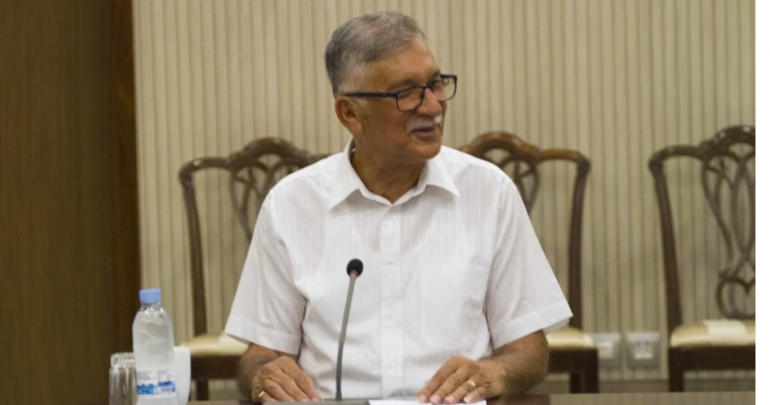The course of cases with double-digit numbers is expected to be declining in the summer, estimates the member of the Advisory Scientific Committee, Professor of Microbiology / Molecular Virology of the Medical School of the University of Nicosia Dr. Petros Karagiannis, however expressing concerns about the introduction of Cyprus by tourists. He notes that for prophylaxis of this strain, the vaccination coverage of the population should reach 80-85%, as recommended by British scientists.
Speaking to KYPE, Dr. Karagiannis expressed satisfaction that our epidemiological picture continues to improve. "I think that despite all the relaxations so far, things are going well. I hope that with today's further relaxations there will be no minor upheavals, on the contrary we will continue to see a downward trend. "Of course this will depend on the further vaccination coverage that is needed and on our own behavior in the next few weeks so that we can fully shield ourselves against the virus," he said.
Asked to comment on the situation that will prevail in the summer, the Professor said that we will be "quiet" in the summer if and when there is no import of any of the mutated strains that are currently circulating in some countries and especially the Indian strain, which has been imported into the United Kingdom.
He explained that in the United Kingdom there is a large community of Indian descent in the United Kingdom from which the strain has been introduced and has made additional mutations, which are being investigated by scientists.
The Indian executive, he pointed out, is 50% more contagious, a fact that worries scientists and that is why they are speeding up the vaccination with the second dose of AstraZeneca in order to shield several citizens of the country.
"I believe that at the moment this particular strain has not been widely transmitted but there is a fear that it will prevail if it is easily transmitted. That is why they try to stop it with the vaccine coverage because it seems to be treated by the vaccines. But we may need to further increase vaccination coverage from 65 to 70% and maybe we should go up to 80 to 85%. This is what scientists in the UK say. "They are worried about this particular strain and say that the higher the vaccination barrier, the better," he noted.
Asked what numbers and levels we will fluctuate in the summer, Dr. Karagiannis said that "the ideal for us would be to fall far below the three-digit numbers, to fall below 100 levels. I think it is achievable with our good behavior and we are already seeing the positive results from the vaccination coverage we have even with the first dose ".
"Once more people are fully vaccinated," he said, "we may also be able to reduce the spread of the virus so that we have double-digit numbers - the virus will not completely disappear from the community due to the mobility of the population and tourists we expect."
Asked if there were any risks of the Indian strain being imported by UK tourists, he said all of them would come with their vaccination certificates and negative tests, expressing hope that we would not have the virus introduced to the island this way.
The sampling that is currently being done at airports, he noted, does not show a large number of positive people.
Asked to comment on whether we will have a fourth wave in the fall, the Professor said that no one knows. "I believe that if our vaccination coverage is such that we have reached herd immunity and perhaps higher rates, it is possible to avoid it. Maybe what we will have are minor outbursts here and there that are controlled. "This will depend on whether a strain emerges, which is problematic and not vaccinated."
Asked if the third dose of vaccine would be necessary, Dr. Karagiannis pointed out that this is something that is widely discussed. "I believe that a third installment will be needed, which will act as a reinforcement of the existing installments. "At the moment we do not know how long the immunity from the vaccines will last and it is good to strengthen this barrier against the virus and also because the third dose vaccines will contain the mutated strains then there will be precaution against them as well."
